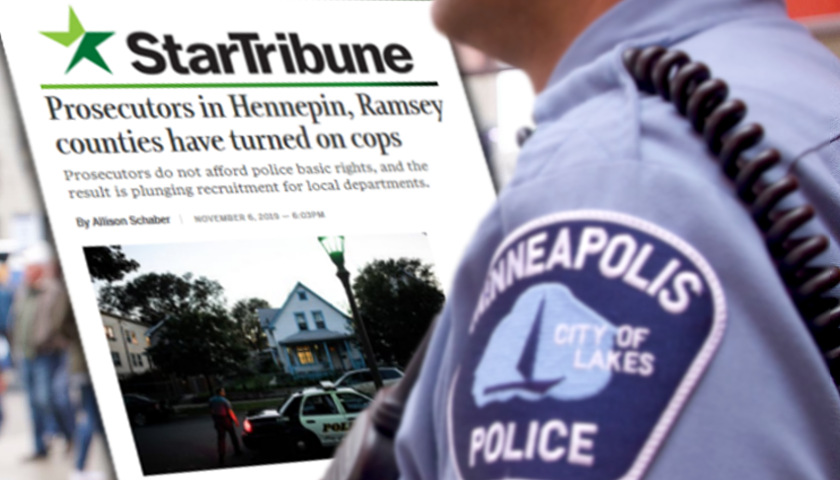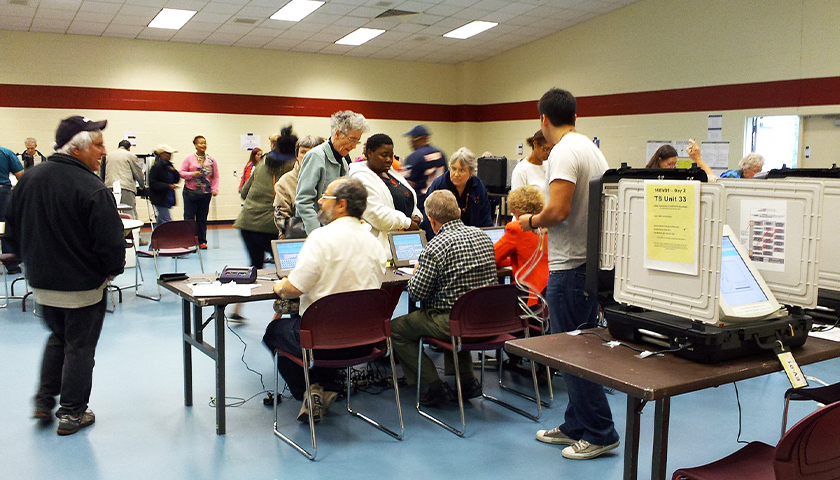A local law enforcement leader said in a recent op-ed that prosecutors in Hennepin and Ramsey counties “have turned on cops” in response to an exclusive report from The Minnesota Sun.
“The Hennepin County Attorney’s Office (HCAO) is circumventing legal requirements to seize personal property,” writes Allison Schaber, president of the Ramsey County Deputy Sheriff’s Union, in a November 6 op-ed for The Star Tribune.
Schaber cites a recent report from The Sun that exposed a new policy in HCAO, which will begin seizing the personal cellphones of any law enforcement officer involved in a critical incident, including cellphones not in an officer’s possession during an incident.
HCAO Media Coordinator Chuck Laszewski told The Sun that the office doesn’t believe the new policy is a violation of privacy rights “because there are no privacy rights in a criminal investigation.”
Schaber called this statement “appalling” and a “position that turns the Constitution on its head.”
“Unfortunately, this is only the latest example of elected officials depriving officers of their rights,” she continues. “A double standard applies to officers when it comes to rights guaranteed by the Fifth Amendment as well.”
She said that the Ramsey County Attorney’s Office (RCAO) routinely “declines criminal charges where the suspect refuses to provide self-incriminating statements on the grounds that, absent an incriminating statement, the prosecutor cannot ensure a conviction.” However, when an officer invokes his right to remain silent, the “implication is drawn that the officer is hiding the truth.”
As a result, county attorneys then “engage in a fishing expedition to find an alternative means to gather what they hope will be incriminating information.”
“The pattern of vilifying law enforcement in troubling,” Schaber adds, saying RCAO has set “an alarming precedent for how it handles violent crime against law enforcement.”
“Officers do not receive the same empathy any other victim would. For example, RCAO recently allowed two individuals who threatened law enforcement with loaded firearms to retain their ability to possess firearms,” she writes. “When officers are charged for lawfully defending their communities and themselves against that very threat, it reinforces a double standard and further hurts recruiting efforts.”
She notes that the vilification of law enforcement officers isn’t applied to other members of the criminal justice system. In a wrongful conviction case in the RCAO, for instance, the prosecutor “was not charged with a crime and did not go to prison.”
“Prosecutors performed their duties as required by law; their actions were not seen as malicious. After all, would anyone still want to become a prosecutor knowing they could go to prison if a person were wrongfully convicted?” she suggests.
Schaber goes on to argue that the behavior of elected officials has created “increased difficulty in police recruiting.”
“Elected officials do not afford law enforcement officers the same basic rights enjoyed by other private citizens. Elected prosecutors apply different charging standards and investigative expectations to cases involving officers,” she concluded. “Yet, when officers are victims of crime, their rights are not protected and elected officials tacitly condone the violent crimes committed against them.”
– – –
Anthony Gockowski is managing editor of Battleground State News, The Ohio Star, and The Minnesota Sun. Follow Anthony on Twitter. Email tips to [email protected].
Image “Star Tribune Op-Ed” by The Star Tribune and “Minneapolis Police Officer” by Minneapolis Police Department.





